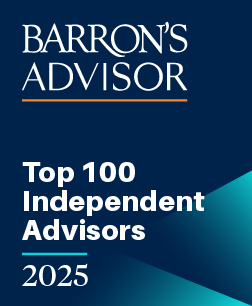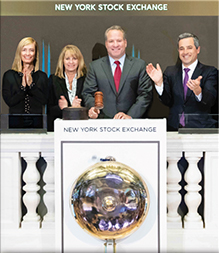Investors know all too well the inevitability of market downturns. While we hummed right along through 2021, this new year and specifically the past few weeks are a sore reminder of what can happen in dramatic fashion. The real threat of continued rising inflation and the invasion of Ukraine by Russia has started testing investors’ confidence levels. It’s been said that the pain investors feel from a loss is twice the amount as the pleasure felt from a gain. These emotions explain why many resort to panic selling, which leads to locking in losses, which leads to timing the market and so forth. Here are some reminders of what you should and should not do before, during, and after an extended market downturn.
We have now entered market correction territory, so the following may sound like Monday morning quarterbacking, however it still rings true. Prior to a market downturn, you should be sizing up your portfolio, taking the time to review your overall allocation and each individual holding to ensure they are aligned with your goals and risk tolerance. What is important is that the investment continues to perform up to expectations. As a long-term investor, you need to follow the golden rule of investing – don’t time the market. Investors who dramatically swing from stocks to cash and back again are attempting to make two right decisions – when to get out of the market, and then, when to get back in. Investors who repeatedly buy and sell, as opposed to remaining invested, have consistently underperformed in their portfolios. Those who have taken the steps to prepare for occasional drops prior to a downturn in the market are better able to manage their emotions. To prepare, you can reduce the volatility in your portfolio by investing the money you may need in the next five years in a more conservative investment. You may want to be more aggressive with the money you earmarked for use in 15 to 20 years.
Now that we are here, what should you do during a market downturn? Don’t panic. Market corrections driven by wars and oil-market disruptions have historically been sharp but short-lived. Selling throughout a downturn only serves to lock in losses and you’ll most likely end up repurchasing at higher prices than when you sold. Just as the market can move downward dramatically, so too it can rise just as quickly. Again, this becomes a matter of timing the market and attempting to know when to get back in. What you should do is ignore the noise. Significant global events occur all the time. News travels at lightning speed and is often sensationalized to the benefit of the news networks and to the detriment of viewers and investors. You’ll need to sort out how events impact your long-term goals. Ask how you think this will impact your portfolio six months from now, one year from now, two years from now, and try to keep your emotions in check.
As the market recovers, it is time for a gut check. Is your risk tolerance what you thought it was? Staying up at night worrying about the short-term volatility of an investment is a warning sign the investment is not a good fit. If this was the case, you’ll want to look to reduce volatility and resist the urge to make up lost ground by taking on more risk. Reassess where you are at in terms of your goals. Do you need to make any adjustments to your overall financial plan? If you decided to get out of the market during the downturn, don’t miss the boat on the upturn. The early days of recovery are often fast and furious. The longer you are out, the further behind you’ll fall. But, do so with your risk tolerance in mind.
It's important to remember that market downturns are a natural and healthy part of investing in the stock market. Investors who are concerned about market volatility should consider strategies that mitigate this risk. However, one must temper volatility risk with the risk of falling short of reaching a long-term financial goal. Investing too conservatively may contribute to not reaching that goal at all. As always, please consult an investment professional to discuss a portfolio strategy appropriate for you and your goals.
Click here to read more of my RetireMint articles. Follow me on Twitter or Linkedin.







